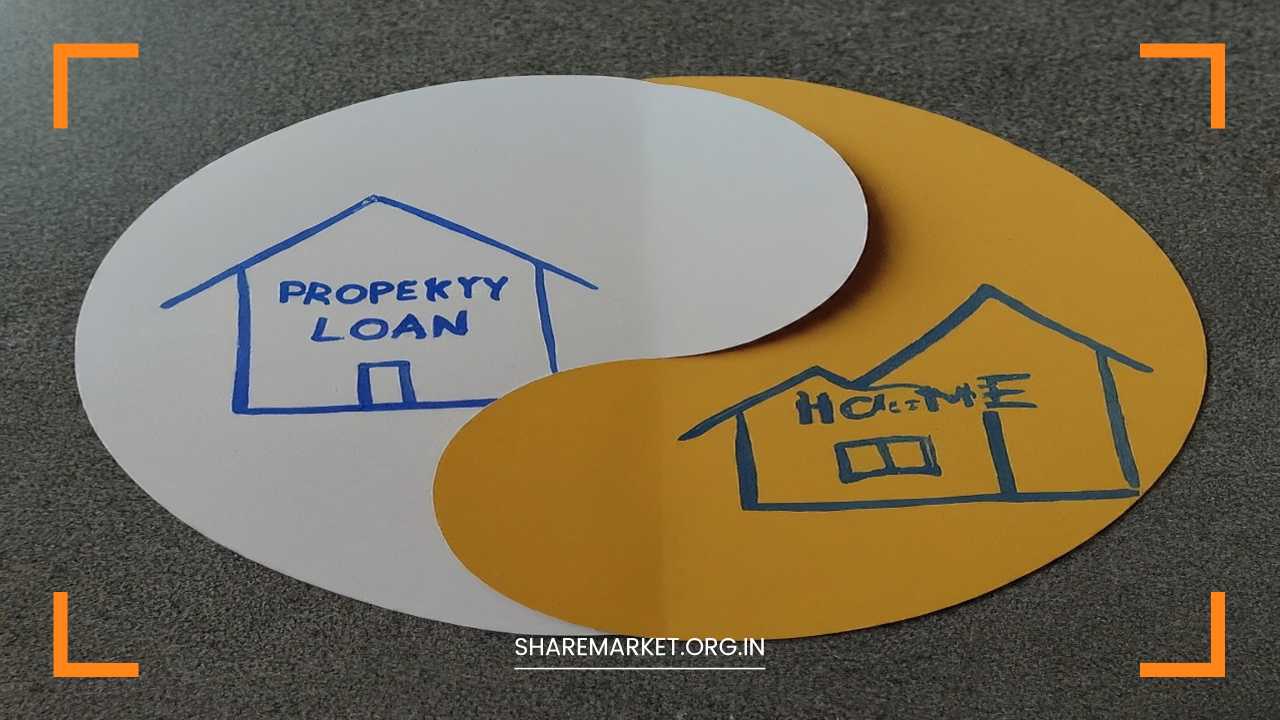Is a Property Loan the Same as a Home Loan?

Property Vs Home Loan
Is a Property Loan the Same as a Home Loan?
Understanding the Difference
In India, property ownership is more than just a financial investment; it’s often seen as a marker of personal success and stability. Whether you’re looking to buy a new house or leverage your existing property for financial gain, understanding the financial products available to you is crucial.
Two common terms that frequently arise in this context are “property loan” and “home loan.” While these terms might sound interchangeable, they are distinct financial products with different purposes, eligibility criteria, and terms.
This comprehensive guide aims to clarify the nuances between property loans and home loans, helping you make informed decisions to achieve your financial goals.
What is a Home Loan?
A home loan is a specific type of financial product designed to help individuals purchase residential property. This loan is secured by the property you buy, which means it acts as collateral.
If you fail to repay the loan as agreed, the lender has the right to take possession of the property to recover the outstanding amount.
Key Features of a Home Loan
- Purpose: Home loans are exclusively meant for the purchase of residential properties. This can include newly constructed homes, resale properties, or even under-construction projects. The primary objective is to assist individuals in acquiring a home where they can live or invest.
- Collateral: The property that you are purchasing serves as collateral for the loan. The lender holds a legal claim on the property until the loan is repaid in full. This means that in the event of default, the lender can initiate foreclosure proceedings to recover the loan amount.
- Interest Rates: Home loans typically feature lower interest rates compared to other types of loans. This is partly due to the government’s subsidies and the associated tax benefits, which make home loans more attractive to borrowers. The lower interest rates can significantly reduce the overall cost of the loan.
- Loan-to-Value (LTV) Ratio: The LTV ratio for home loans is generally higher, allowing borrowers to finance a larger portion of the property’s value. This means that you might only need to make a smaller down payment compared to other types of loans.
- Tenure: Home loans come with longer repayment periods, often extending up to 30 years. This extended tenure helps in making monthly payments more manageable and spreads the repayment burden over a longer period.
- Tax Benefits: Home loans offer substantial tax benefits under Section 24 and Section 80C of the Income Tax Act. You can claim deductions on the interest paid and the principal repayment, which can lead to significant savings on your tax bill.
Advantages of Home Loans
- Affordability: Lower interest rates and longer tenures make home loans more affordable compared to other types of loans.
- Long-Term Investment: By securing a home loan, you are investing in a long-term asset that can appreciate in value over time.
- Government Support: Government subsidies and tax benefits enhance the attractiveness of home loans, making them a popular choice among first-time homebuyers.
Disadvantages of Home Loans
- Collateral Requirement: Since the property serves as collateral, failure to repay can result in the loss of your home.
- Eligibility Criteria: Home loans often have stringent eligibility criteria, including credit scores, income levels, and property valuations.
- Long-Term Commitment: The long repayment tenure means a long-term financial commitment, which can be burdensome if your financial situation changes.
What is a Property Loan?
A property loan, often referred to as a Loan Against Property (LAP), is a type of secured loan where you use your existing property as collateral to borrow money.
Unlike a home loan, the funds obtained through a property loan can be used for a wide range of purposes, such as business expansion, medical expenses, educational needs, or other personal requirements.
Key Features of a Property Loan
- Purpose: Property loans are versatile and can be utilized for various purposes beyond purchasing real estate. This flexibility makes them suitable for individuals who need funds for reasons other than acquiring a new property.
- Collateral: The existing property, which can be residential, commercial, or even industrial, serves as collateral for the loan. This means that the lender holds a claim on the property until the loan is repaid.
- Interest Rates: Interest rates on property loans are generally higher compared to home loans. This is due to the increased risk associated with loans that are not specifically intended for property purchases and the fact that the property is already owned.
- Loan-to-Value (LTV) Ratio: The LTV ratio for property loans is typically lower than that of home loans. Since the property is already owned, lenders usually offer a lower percentage of the property’s value as a loan.
- Tenure: Property loans often come with shorter repayment periods compared to home loans. While this results in higher monthly payments, it also means you pay off the loan quicker.
- Tax Benefits: Property loans generally offer fewer tax benefits than home loans. The interest on a LAP is not eligible for the same tax deductions that home loan interest enjoys.
Advantages of Property Loans
- Flexibility: The funds from a property loan can be used for various purposes, providing financial flexibility to meet diverse needs.
- Leverage Existing Assets: Property loans allow you to leverage the value of property you already own to secure additional funding.
- Quick Access to Funds: The approval process for property loans can be faster compared to other types of loans, providing quicker access to funds.
Disadvantages of Property Loans
- Higher Interest Rates: The interest rates on property loans are generally higher, increasing the overall cost of borrowing.
- Reduced Loan Amount: The LTV ratio is lower, meaning you might not be able to borrow as much as you would with a home loan.
- Fewer Tax Benefits: Limited tax benefits can make property loans less financially advantageous compared to home loans.
Key Differences Between Home Loans and Property Loans
Understanding the key differences between home loans and property loans can help you choose the right financial product based on your needs. Here’s a detailed comparison:
| Feature | Home Loan | Property Loan |
|---|---|---|
| Purpose | Exclusively for purchasing residential property | Flexible, can be used for various purposes |
| Collateral | The property being purchased | Existing property (residential or commercial) |
| Interest Rates | Generally lower due to subsidies and benefits | Higher, reflecting increased risk |
| LTV Ratio | Higher, allowing for more financing | Lower, due to the property already being owned |
| Tenure | Longer, often up to 30 years | Shorter repayment periods |
| Tax Benefits | Significant tax deductions available | Fewer tax benefits |
Which Loan is Right for You?
Choosing between a home loan and a property loan depends on your financial goals and circumstances. Here’s a guide to help you determine which type of loan might be more suitable for you:
Opt for a Home Loan If:
- You Plan to Purchase a Residential Property: If your main objective is to acquire a new home or an existing residential property, a home loan is specifically designed for this purpose.
- You Want to Avail Government Subsidies and Tax Benefits: Home loans come with various government incentives and tax benefits that can make them more financially advantageous.
- You Require a Longer Repayment Tenure: If you prefer to spread out your repayments over a longer period to reduce your monthly financial burden, a home loan offers extended repayment terms.
Opt for a Property Loan If:
- You Need Funds for Purposes Other than Buying a House: If you need capital for business ventures, medical emergencies, education, or other personal needs, a property loan provides the flexibility to use the funds as required.
- You Own a Property and Want to Leverage Its Value: If you already own property and wish to use its value to secure a loan for various financial needs, a property loan is ideal.
- You Require a Shorter Repayment Tenure: If you are comfortable with higher monthly payments and prefer to repay the loan quickly, a property loan with a shorter tenure might be more suitable.
Factors to Consider Before Applying
Before applying for either a home loan or a property loan, it’s essential to evaluate several factors to ensure you choose the best option for your needs:
- Property Value: The value of the property you are using as collateral or purchasing will significantly influence the loan amount you can obtain. Higher property values generally lead to higher loan amounts.
- Repayment Capacity: Assess your ability to comfortably repay the loan. Consider your current income, existing financial obligations, and potential future changes to ensure you can manage the loan repayments effectively.
- Interest Rates: Compare interest rates offered by different lenders to find the most favorable terms. Even a small difference in interest rates can have a significant impact on the overall cost of the loan.
- Hidden Charges: Be aware of any additional costs associated with the loan, such as processing fees, prepayment penalties, and other hidden charges. These can add to the overall cost of borrowing and should be factored into your decision.
- Loan Tenure: Choose a loan tenure that aligns with your financial goals and repayment capacity. Longer tenures may result in lower monthly payments but higher overall interest costs, while shorter tenures can reduce total interest but increase monthly payments.
Final Word
Understanding the differences between a home loan and a property loan is crucial for making informed financial decisions. Both types of loans are secured, but they serve different purposes and come with varying terms, eligibility criteria, and benefits.
By carefully evaluating your financial needs, goals, and options, you can select the loan that best suits your circumstances and helps you achieve your objectives.
A home loan is ideal for those looking to purchase a new or existing residential property, offering lower interest rates, longer repayment tenures, and significant tax benefits.
On the other hand, a property loan provides flexibility for a wide range of uses beyond property acquisition, but typically comes with higher interest rates and fewer tax benefits.
Before making a decision, it is advisable to consult with a financial advisor to receive personalized guidance tailored to your specific situation. This ensures that you choose the financial product that best aligns with your needs and long-term financial goals.
Remember, this article provides general information and should not be considered financial advice. Consulting with a professional financial advisor will help you make the most informed choice based on your individual circumstances.

















